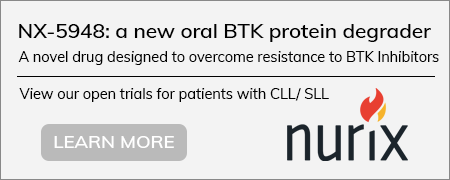CLL Society is the world’s leading authority for chronic lymphocytic leukemia and small lymphocytic lymphoma cancer patients.
We are devoted to serving our community through
CLL and SLL education, support, advocacy and research.
CLL Society is the world’s leading authority for chronic lymphocytic leukemia and small lymphocytic lymphoma cancer patients.
We are devoted to serving our community through CLL and SLL education, support, advocacy and research.
Actively Enrolling Clinical Trials in CLL. To access additional clinical trials please search: clinicaltrials.gov

CLL SOCIETY FAST FIND
One click to our most popular content.
Watch The CLL Society Impact
CLL Society is here to make sure no individual diagnosed with CLL / SLL goes through the journey alone. We provide education, support, and community to empower patients and their caregivers to be self-advocates, knowledgeable about the various options available for fighting their cancer. We advocate for policy change and treatment access that will lead to lasting change in improving patient outcomes. We fund basic science and translational research to find answers to unsolved complications in CLL / SLL. All because we believe, Smart Patients Get Smart CareTM and everyone deserves to have access to quality care and support for their cancer.
What's New in CLL / SLL?
in the U.S. and Canada.
Help us start
groups in new cities.
Many
Ed forums, virtual community meetings, and webinars
Informative webinars, ed forums, and virtual community meetings held all year long!
Register here.
Thank you.
CLL Society 2023 Industry Advisory Council
Platinum:


Gold:

Silver:



















